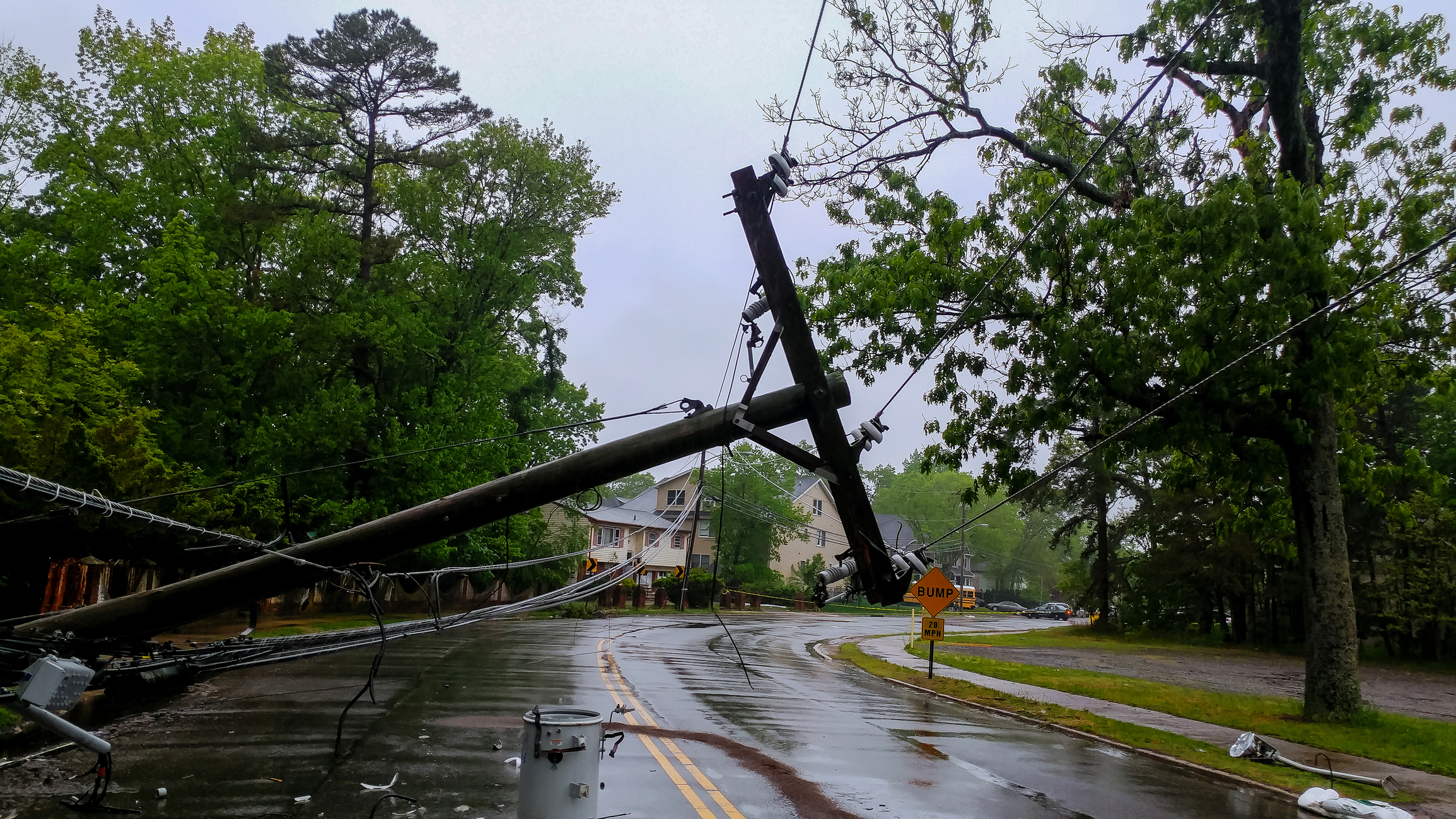One out of every five Americans live in rural areas, many of which are highly exposed to climate change impacts due to their socioeconomic, geographical, and infrastructure characteristics.
In July 2022, historic flooding in Eastern Kentucky caused 18,000 service connections to lose water and over 45,000 connections to receive boil notices, severely disrupting rural water systems.
Climate change will continue to exacerbate many existing rural water challenges, including water quality, affordability, availability, and access, as well as aging infrastructure and disaster recovery across the United States.
Project Overview
Rural water and wastewater systems face clear and growing dangers from climate change impacts. Many factors converge to create inequitable risks, and decision-makers must grapple with complex realities when devising and implementing strategies to build resilience. This complexity requires evidence-based approaches to collaborative problem solving. To better understand climate change impacts on water and sanitation in rural communities, the Livelihoods Knowledge Exchange Network (LiKEN), Pacific Institute (PI), and the Rural Community Assistance Partnership Incorporated (RCAP) partnered to form the Water and Climate Equity project.



By integrating multiple lenses and forms of expertise across these organizations, the project was co-designed and co-produced to nurture community-centered climate resilience in an era of mounting water crises. The project focuses on rural communities, which often lack sufficient financial, technical, and managerial resources to handle existing challenges, including water affordability, access, safety, inadequate or aging infrastructure, and disaster recovery.
Climate models indicate that climate change will exacerbate these issues, necessitating community-specific solutions rooted in local knowledge, leadership, and networks of support. The aim of this project is to document and understand water and climate resilience in rural communities and investigate opportunities to scale evidence-based decision support information and tools in the future so that additional communities can move toward more equitable, climate-resilient water systems.
Publications
Report | Strategies for Resilient Rural Water and Sanitation in the United States
This report brings a rural focus to our previous report, Achieving Equitable, Climate-Resilient Water and Sanitation for Frontline Communities: Water, Sanitation, and Climate Change in the United States, offering strategies and real-world examples that highlight the unique characteristics, challenges, and opportunities of rural communities. Developed in collaboration with the Livelihoods Knowledge Exchange Network (LiKEN), rural communities, and rural technical assistance providers, it outlines over 130 actionable strategies and approaches to help rural areas across the US strengthen the climate resilience of their water and sanitation systems.
“There is no other resource like this specifically tailored for rural communities”
Dr. Shannon McNeeley, Associate Director of Water and Climate Equity, Pacific Institute.
Report | Water and Climate Equity in Rural Water Systems in the United States
This report introduces an innovative community-centered framework to assist leaders in rural communities to build equitable water and wastewater systems that will be resilient to climate change in the future. It explores ways to nurture community-centered climate resilience in an era of mounting water crises and highlights these issues in the Southwest and Central Appalachia regions where a concentration of homes lack adequate water and sanitation services. The report also underscores that climate change will continue to exacerbate many existing water-related challenges, including water affordability, safety, and access, as well as aging infrastructure and disaster recovery.
“It is a privilege to listen to the insights of people at the frontlines of these challenges. In many ways, we saw a grim picture. But a community-centered perspective also provided rich insights into possible pathways towards resilience and equity.”
Dr. Betsy Taylor, Executive Director, LiKEN.
Issue Brief | Climate Change and Rural Water for Frontline Communities in the Southwest United States
This issue brief provides an overview of the escalating threat climate change poses to rural water for frontline communities in the Southwest United States. It delves into the observed and projected impacts of climate change, emphasizing the disproportionate risks faced by Latino, Hispanic, and Indigenous populations in these areas. Through this issue brief, the authors also aim to highlight the need for innovative strategies and approaches necessary to build equitable, climate-resilient rural water systems.
“Rural communities are at especially high risk, including Hispanic, Latino, and Indigenous populations, who are disproportionately affected by these climate change impacts to their water systems.”
Lena Schlichting, Senior Research Specialist, RCAP
Issue Brief | Climate Change and Flooding in Central Appalachia
This issue brief presents the observed and projected impacts of climate changes in Central Appalachia with a focus on increased extreme precipitation events and flooding on rural water systems and sanitation.
“This issue brief highlights the urgent need for climate adaptation and resilience measures to prepare these communities for what’s to come.”
Dr. Shannon McNeeley, Senior Researcher, Water and Climate Equity Lead, Pacific Institute
Blog | The Growing Threat of Catastrophic Flooding in Rural America
Published in early 2025, this blog explores the increasing frequency and severity of catastrophic flooding in the United States and its impacts on rural communities. As climate change drives more extreme flooding, rural communities face growing challenges in maintaining infrastructure and ensuring access to safe water and sanitation. The post highlights recent rural flooding events, the social and physical factors involved, and opportunities to strengthen resilience.
“This blog untangles the climate change footprint behind rural catastrophic flooding and underscores the critical need to strengthen rural water and sanitation systems to withstand more intense flooding in the future.”
Becky Anderson, Researcher, Pacific Institute
Blog | Moving Toward Equitable, Climate-Resilient Water Systems in Rural Communities in the United States
Published in early 2023, this blog provides a brief summary of some early key findings from the research and examples of climate impacts to water systems in rural communities in the contiguous United States. Over the next several months, the project team continued to co-develop this work with community stakeholders and produced free, publicly available resources to help identify and overcome challenges, maximize opportunities, and utilize solutions and strategies for climate-resilient water systems in rural communities.
“It’s critical that solutions for water resilience in rural communities are rooted in local knowledge and center the needs and perspectives of local communities.”
Laura Landes, Associate Director of Research and Data, RCAP
Webinar | Building Resilience in Rural Water Systems (Part 1)
This webinar hosted by WaterNow Alliance explores the complex challenges facing rural water systems, and the ways climate change intensifies these issues.
“The webinar provided important insights on how climate change affects rural water systems and considerations for local decision makers, utilities, and community leaders as they prepare for and respond to climate disruptions.”
Amy Weinfurter, WaterNow Alliance’s Director of Strategic Projects
Webinar | Building Resilience in Rural Water Systems (Part 2)
This webinar hosted by WaterNow Alliance built upon Part 1 by sharing strategies to address rural water and sanitation challenges and build resilience to climate change.
“The webinar showcased diverse strategies from rural communities across the US building climate-resilient water and sanitation systems. It provided actionable insights for rural communities to adapt to the growing challenges of climate change.”
Becky Anderson, Research Specialist, Water and Climate Equity, Pacific Institute
To learn more about this project write to:
wce@pacinst.org with ‘Water and Climate Equity in Rural Communities in the US’ in the subject line


